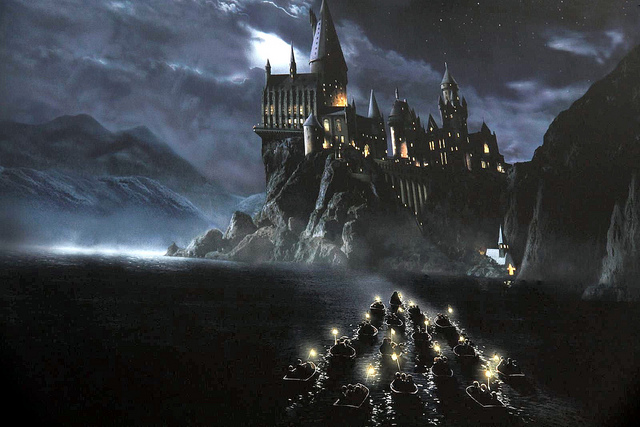
Is Harry Potter Becoming A New Religion?
- By C Barnett --
- 10 Oct 2017 --

New Podcast Creates Controversy About Learning Spirituality From Popular Book Series Harry Potter
A prophet who returns from the dead. Betrayed by someone close to him. Feared by evil and seen as a savior. No, we are not talking about Jesus, but Harry Potter. One of the most popular podcasts in the country is Harry Potter and the Sacred Text. It uses the Harry Potter books to explore popular social and spiritual themes. Think of it as a secular Bible group. And it has created a popular fan base in a short period of time.
Is Harry Potter Becoming A New Religion?[/tweetthis]
The podcast was created by Casper ter Kuile and Vanessa Zolton, two graduates of Harvard Divinity School. The show integrates religious scholarship including Pardes, a Jewish study method, Lectio Divina, a practice of reading sacred texts from Benedictine monks, and Medieval Florilegium.
These techniques are used for close reading of the text. Themes like forgiveness, mercy, and sanctuary are discussed based on chapters of the Harry Potter books. Sometimes the focus of the discussion can be about four sentences in a single chapter.
Growing to the second most popular podcast, many members are hosting their own groups. Unlike most book clubs, rather than talking about the plot of the book, the series is used as a springboard for speaking about spiritual manner outside of any religion. One fan stated “it always gives me guidance in a way I didn’t know I needed.” September C. Fawkes, an English scholar who wrote her thesis on Harry Potter, believes the similarities between great fiction and religious texts are that both can change meanings and have different meanings to readers as they grow older.
Some religious organizations have criticized the groups as a sign of lack of religiousness in America. With more than a third of millennials who do not believe in religion and a larger number of people identifying as spiritual but not religious, this could be a new way people are integrating spirituality into their lives on their own terms.


















